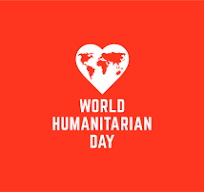The Foundation for Environmental Rights, Advocacy & Development (FENRAD) has called for stronger global solidarity and greater investment in community-led initiatives as the world marked World Humanitarian Day 2025 on Monday.
The annual event, observed in collaboration with the United Nations and humanitarian partners worldwide, was held under the theme: “Strengthening Global Solidarity and Empowering Local Communities” with the campaign hashtag #ActForHumanity.
According to FENRAD, this year’s theme speaks to the pressing need for unified action in the face of growing humanitarian crises—from conflicts and climate disasters to pandemics and large-scale displacement. The group warned that the world is witnessing “unprecedented levels of human suffering,” making it urgent to combine international cooperation with grassroots engagement.
In a statement signed by its Executive Director, Nelson Nnanna Nwafor, the Aba-based human rights and environmental advocacy group said true humanitarian response begins at the local level.
“Empowering communities with knowledge, tools, and opportunities ensures resilience and self-determination. As we advocate for environmental justice and sustainable development, we recognize that the fight for human rights must be inclusive, just, and people-centered,” the statement read.
FENRAD also paid tribute to humanitarian workers across the globe—particularly those who risk their lives in conflict zones and disaster-hit areas—while reaffirming its commitment to upholding humanitarian law, protecting civilians, and promoting peace and justice.
The organization used the occasion to issue a strong call to action: urging governments to honor their obligations under international humanitarian law, donors and partners to prioritize investments in locally driven initiatives, and citizens and civil society groups to stand in solidarity with vulnerable populations.
“Humanitarianism is not a choice but a shared responsibility,” Nwafor stressed, adding that sustainable solutions to global crises must recognize the central role of communities in building resilience.
World Humanitarian Day, first established by the United Nations in memory of the 2003 Baghdad bombing that killed 22 humanitarian workers, has since become a global platform for honoring those who serve on the frontlines of crises and for amplifying calls for urgent humanitarian action.


